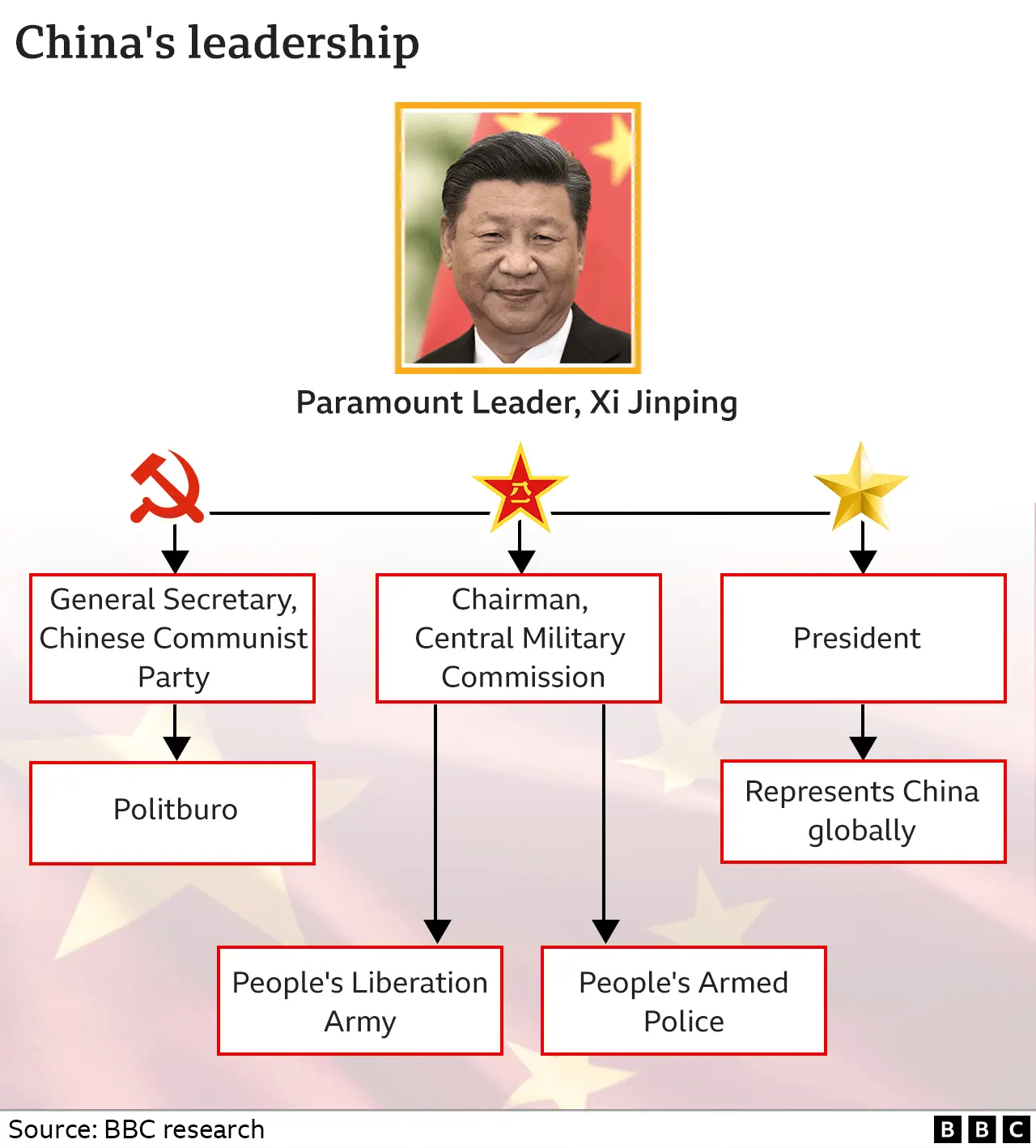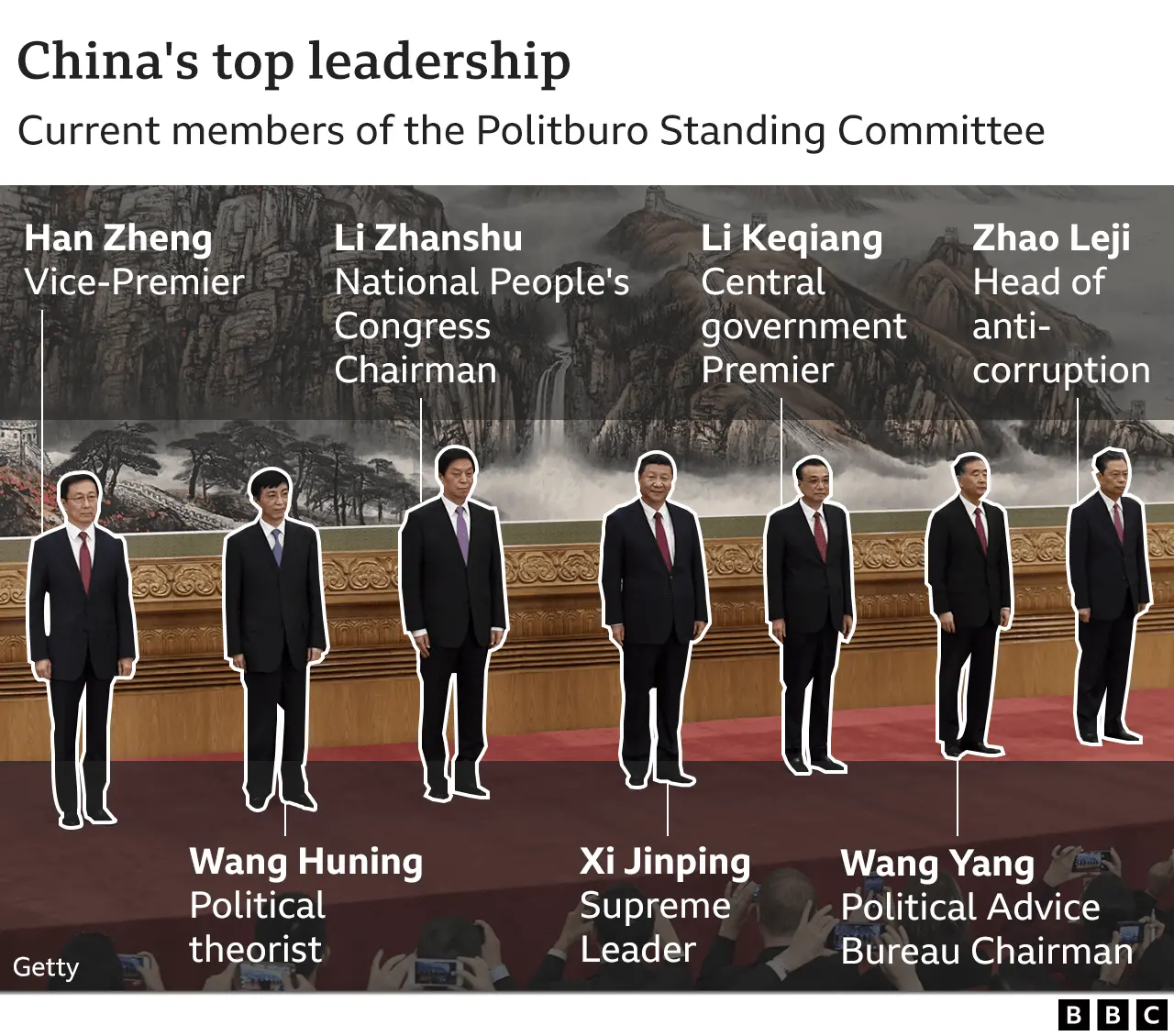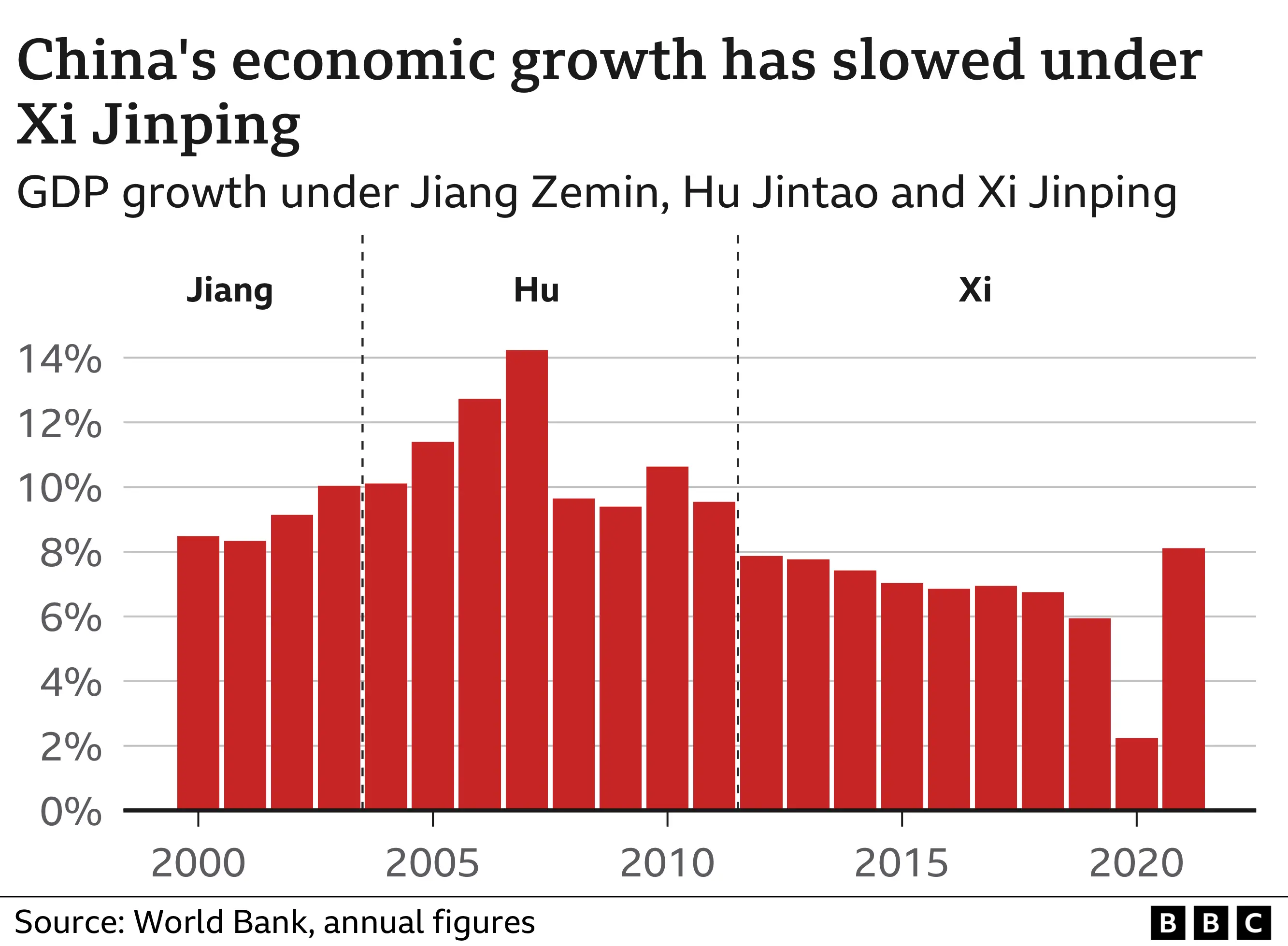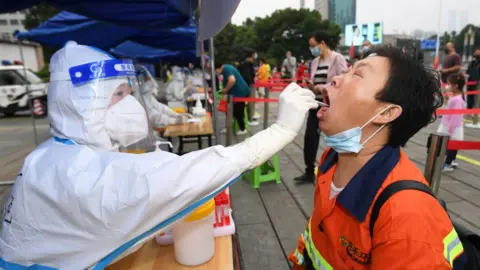China's Communist Party Congress: A really simple guide
 BBC
BBCChina's ruling Communist Party is expected to hand a third five-year term to Xi Jinping, arguably the most powerful Chinese leader since Mao Zedong in the 1970s.
The decision would further tighten his grip on China.
It is possible that Mr Xi, 69, will remain in power for the rest of his life.
The historic move is due at a Communist Party Congress under way in Beijing - one of the most important meetings in the party's history.
Xi Jinping currently holds three top positions
- As General Secretary he is the chief of China's Communist Party.
- As president he is China's head of state.
- As Chairman of China's Central Military Commission he commands the country's armed forces.
He is also referred to as Paramount or Supreme leader.

Mr Xi is likely to retain the first two titles, party General Secretary and Central Military Commission chairman at the party congress - which takes place every five years - and the presidency at the annual National People's Congress in Spring 2023.
What happens at the Congress?
Some 2,300 delegates have gathered in Tiananmen Square's Great Hall of the People for a week.
About 200 of them will be selected to join the party's central committee, plus around 170 alternate members.
The central committee will elect 25 people to the party's Politburo.
And the Politburo will appoint the members of the Politburo standing committee.
These are the elite of the elite.
There are currently seven members, including the party's General Secretary Xi Jinping.
They are all men.

Not all of the action takes place at the congress itself.
The central committee is expected to meet the day after the main congress ends.
Why is it important?
Mr Xi leads the world's second-largest economy and one of its biggest military forces.
Some analysts say he is likely to push China towards a more authoritarian political stance in a third five-year term.
"China under Xi is moving in a totalitarian direction," says Professor Steve Tsang of London University's School of Oriental and African Studies (SOAS).
"China under Mao was a totalitarian system. We're not there yet, but we're moving in that direction."
Professor Tsang says the Congress could see changes to the party's constitution, with "Xi Jinping thought" being further enshrined as the party's guiding philosophy.
"Xi Jinping thought" is Mr Xi's brand of Chinese socialism, an assertively nationalist philosophy which is highly sceptical of private business.
Under his leadership the Chinese authorities have cracked down on powerful companies in several sectors of the economy.
"If that happens, they'll effectively make him a dictator," Prof Tsang says.
Henry Huiyao Wang, former Counsellor to the State Council of China, insists that Mr Xi should be credited with building his country into a prosperous, modernised society.
"China has its unique way", he says. Beijing is "trying to have a consultative democracy, not an American meritocracy".
China's top leadership team, to be unveiled at the congress, will set a huge range of policies.
Any hint of China's future direction will be followed closely around the world, particularly on the key challenges: economic, political, diplomatic and environmental.
China's economic challenge
China's economy has boomed in recent decades.
But it now faces serious economic disruption from Covid lockdowns, rising prices and a major property crisis.
Growing fears of a global recession triggered by the war in Ukraine have also damaged confidence.
Economic growth under Mr Xi's leadership is lower than under previous presidents Jiang Zemin and Hu Jintao.

Some analysts say the legitimacy of the communist government rests heavily on its ability to deliver higher incomes and good jobs for Chinese workers.
So bad economic performance in the next five years could spell serious political trouble for Mr Xi.
The congress will set the stage for a shake up of key economic roles including central bank governor and premier.
Zero Covid
China's zero Covid approach to the pandemic is one of Xi's landmark policies.
While much of the world has been returning to normal, China's authorities have intensified their efforts to contain outbreaks, with strict lockdowns, mass testing and lengthy quarantines.
Reports say that more than 70 cities including Shenzen and Chengdu have been under full or partial lockdown measures in recent weeks, with tens of millions of residents affected, huge numbers of businesses disrupted and reports of public discontent.
 Getty Images
Getty ImagesOn Sunday, the opening day of the congress, Mr Xi signalled there would be no immediate loosening of the zero-Covid strategy.
He insisted zero-Covid was a "people's war to stop the spread of the virus", and that China's government had "protected people's safety and health to the highest degree".
Taiwan and the West
Mr Xi has also favoured a hardline approach to relations with the West, particularly over Taiwan.
A visit to Taiwan by the Speaker of the US House of Representatives in August prompted China to launch military exercises, including live missile firing, around the island.
China sees Taiwan as a breakaway province that will eventually be under Beijing's control. Taiwan sees itself as distinct from the mainland.
Mr Xi has said "reunification" with Taiwan "must be fulfilled" by 2049, the centenary of the People's Republic - and has not ruled out the possible use of force to achieve this.
Security experts say that a Chinese takeover of Taiwan would shatter US power in the western Pacific Ocean and beyond.
Taiwan is of huge strategic importance to the West, part of the so-called "first island chain", which includes a list of territories which have been allied to the US for decades.

In his speech, Mr Xi said that the Taiwan issue "must be resolved by Chinese people alone".
He added: "We will work faster to modernise military theory, personnel and weapons."
Additional reporting by Wanyuan Song
